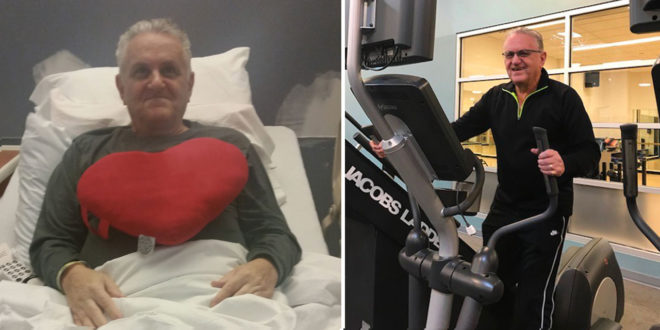by Michelle Sutton-Kerchner
It was an ordinary dinner date for Richard Mazzella and his wife. Even his indigestion seemed typical, which he treated with an antacid and a night’s sleep. Richard did not realize a heart attack was in progress …
The Morning After
Despite not feeling well the evening before, Richard awoke refreshed and well. Regardless, his wife urged him to follow up with his primary physician for a precautionary exam. Based on his symptoms, the doctor ordered bloodwork. Upon returning home, his doctor’s office already had called with the results. He was instructed to phone 911 for an ambulance ride to the emergency department.
Richard was experiencing the onset of a heart attack.
“By then, I felt absolutely fine,” he relates of this surreal turn of events. At the hospital, Richard immediately received medication to stop the heart attack.
Hearing about friends his age in need of cardiac stents, he incorrectly assumed he would require this same outpatient surgical procedure. After all, he felt fine. In reality, Richard was not fine at all. Tests revealed his arteries were severely clogged. Quadruple bypass surgery was needed.
Know the Warnings
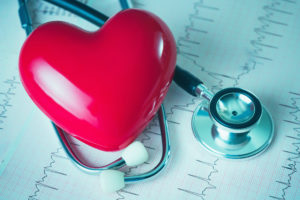 As Richard learned, a heart attack does not always appear with the dramatic flair portrayed in movies. Chest pain is not always sudden and strong, with an inevitable quick fall to one’s death.
As Richard learned, a heart attack does not always appear with the dramatic flair portrayed in movies. Chest pain is not always sudden and strong, with an inevitable quick fall to one’s death.
By seeking treatment immediately, you can improve your outcome. (Do not drive yourself. If a cardiac event occurs when behind the wheel, it can cause a fatal accident.) You can survive—and even thrive—after a heart attack.
The signs:
- Chest pain or discomfort, including pressure, tightness, squeezing, or aching
- Pain in arms that may spread to your neck, jaw, or back
- Nausea, indigestion, heartburn, or abdominal pain
- Shortness of breath
- Cold sweat
- Fatigue
- Light-headedness or sudden dizziness
Symptoms do not have to persist for long to be a warning. Richard’s symptoms were completely gone, even though danger remained very present.
Finally, Home!
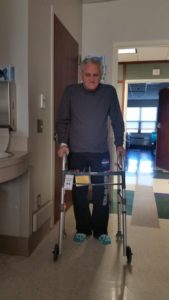
Richard did not realize that fateful day he rushed to the emergency department would be his last home for quite a while. Veins were taken from both legs for his heart graft, making rehabilitation more challenging. His heart was repaired, but his weakened legs left him unable to walk.
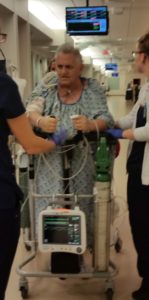
He persevered through physical and occupational therapy. “It was a gradual process. I couldn’t push myself or I’d get hurt,” notes Richard.
As he gained mobility, he advanced through different levels of rehabilitation treatment. He valued the strong trust built with his therapeutic team. When they advised the Center’s Cardiac Wellness Program, Richard took that next step without question.
Stronger Than Ever
Under the guidance of specialized personal trainers in the Cardiac Wellness Program, Richard continues to build momentum. Here, his goals focus more on fitness and growing stronger. He traveled so far from those first post-surgery steps he struggled to take in the hospital.
Unlike many recovering from a cardiac event, Richard is not afraid to leave it all on the Fitness Floor. He is comforted by the peace-of-mind gained from continuous monitoring. Before and after each workout, his personal trainer does a brief screening, including heart rate and pulse. Along with exercise, the Program also helps him practice healthier eating.
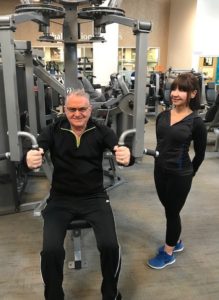
He now spends longer on the treadmill, and at three times the speed, than when he began four months ago. His hard work helped his recovery, as well as his overall health. Richard lost weight. He lowered his cholesterol, for which he has been taking medication over the past 15 years.
Richard notes he is stronger today than ever. His new goal is to work out independently, gain more strength, and try yoga. To keep the momentum, he became a Center member. He remains part of the Cardiac Wellness Maintenance Program as well. The wake-up call was frightening. However, the result of a healthier lifestyle may save his life many times over again.
Richard cautions, “Don’t only look for typical signs of a heart attack. In my case, they just were not there.”
Know Your Numbers
Get regular physicals. Know your blood pressure, cholesterol/triglyceride levels, and health history. If you suspect a heart attack, call for an ambulance.
Always take matters of the heart seriously.
 Fitness & Wellness News Your Source for Fitness News, Wellness News, Health News, and Nutrition News!
Fitness & Wellness News Your Source for Fitness News, Wellness News, Health News, and Nutrition News!
